Are you grappling with the intricacies of addressing a board ethics violation? Crafting a well-structured letter can be your first step towards clarity and resolution. In this guide, we'll walk you through essential components, from outlining the specific ethics code breached to emphasizing the importance of accountability. So, let's dive in and empower your voice as you navigate this crucial conversationâread on to discover practical tips and templates!
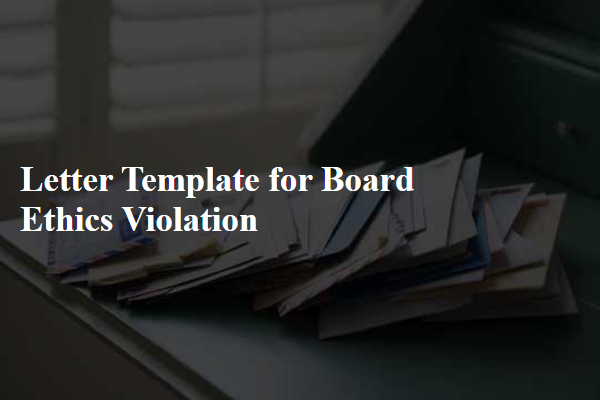
Clear identification of the ethical violation.
Inappropriate conduct by board members can lead to serious ethical violations, undermining the integrity of the organization. For instance, a board member engaging in conflict of interest by participating in discussions or decisions that directly affect their personal financial investments, such as owning stock in a competing company, represents a significant breach of fiduciary duty. This behavior can create a lack of trust among stakeholders and potentially violate policies outlined in the organization's bylaws. Transparency, accountability, and adherence to ethical standards are paramount in maintaining the board's reputation and ensuring the organization's effective governance.
Reference to specific code of conduct or policies breached.
A significant breach of the organizational Code of Ethics has been identified, specifically referring to the provisions regarding conflict of interest defined in Section 2.3. The incident involved Board Member John Smith engaging in business dealings with Company X while simultaneously participating in discussions that could influence contractual agreements with this entity, raising ethical concerns. The Board of Trustees possesses an obligation to uphold integrity, transparency, and accountability, as outlined in Policy P-102. Additionally, the failure to disclose such relationships undermines trust and violates the spirit of ethical leadership essential for maintaining organizational credibility. Each member must adhere to established protocols to prevent future violations and ensure adherence to our collective commitment to ethical conduct.
Detailed description of the incident with factual evidence.
In January 2023, during a board meeting for the XYZ Nonprofit Organization, a significant ethics violation occurred involving the treasurer, John Smith. During the discussion about reallocating $50,000 in funds meant for community outreach programs, Mr. Smith disclosed confidential financial information related to a competing organization, ABC Charity. This unauthorized sharing of sensitive data violates the Nonprofit Board Governance Principles established in Article 7 of our organization's bylaws. Furthermore, a recorded statement made during the meeting, which was transcribed, illustrates Mr. Smith's explicit mention of ABC Charity's financial strategies, denoting potential conflicts of interest and undermining the ethical standards expected from board members. Witness accounts also corroborate that Mr. Smith was informed prior to the meeting of the confidentiality requirements concerning other organizations. This incident raises serious concerns about the integrity and accountability expected from board leadership, warranting immediate investigation and review.
Outline of potential consequences or disciplinary actions.
A board ethics violation can lead to significant consequences impacting both individual members and the organization as a whole. Potential outcomes may include suspension for a defined period, which could last from a few weeks to several months, depending on the severity of the infraction. In egregious cases, permanent removal from the board may be warranted, as stipulated by governing documents or bylaws specific to the institution. Mandatory ethics training might also be imposed, requiring members to complete a program designed to enhance understanding of ethical conduct and responsibilities. Fines or restitution may be sought, especially if the violation has caused financial harm to the organization or its stakeholders. Documentation of the violation will likely become part of the member's record, impacting their reputation and future eligibility for leadership positions. Organization transparency might be mandated, including public disclosures to stakeholders or regulatory bodies, ensuring accountability and restoring public trust.
Inviting the subject to respond or provide their perspective.
Ethics violation investigations often involve serious implications for individuals and organizations. In certain cases, concerns were raised regarding actions or decisions (specific incidents or dates may enhance clarity) that may contravene established ethical guidelines. Clarity is essential in addressing issues such as breaches of confidentiality, conflicts of interest, or improper conduct within corporate governance. The individual in question, [Name of the Subject], is invited to provide their perspective on the allegations, contributing to a thorough and fair inquiry into the circumstances surrounding this matter. Open dialogue can foster transparency and support fair resolutions while ensuring that all parties are heard.

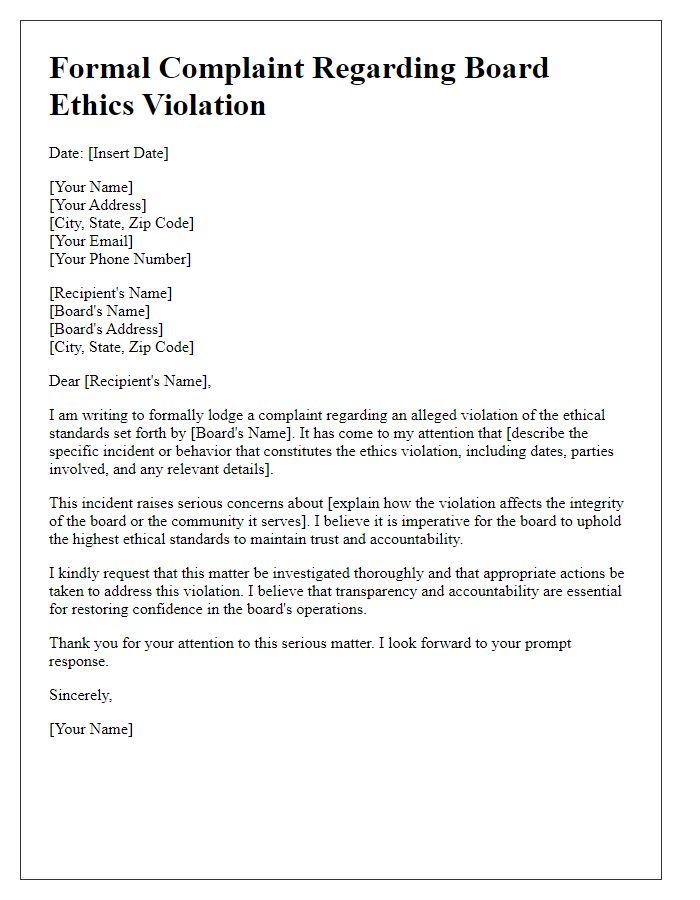
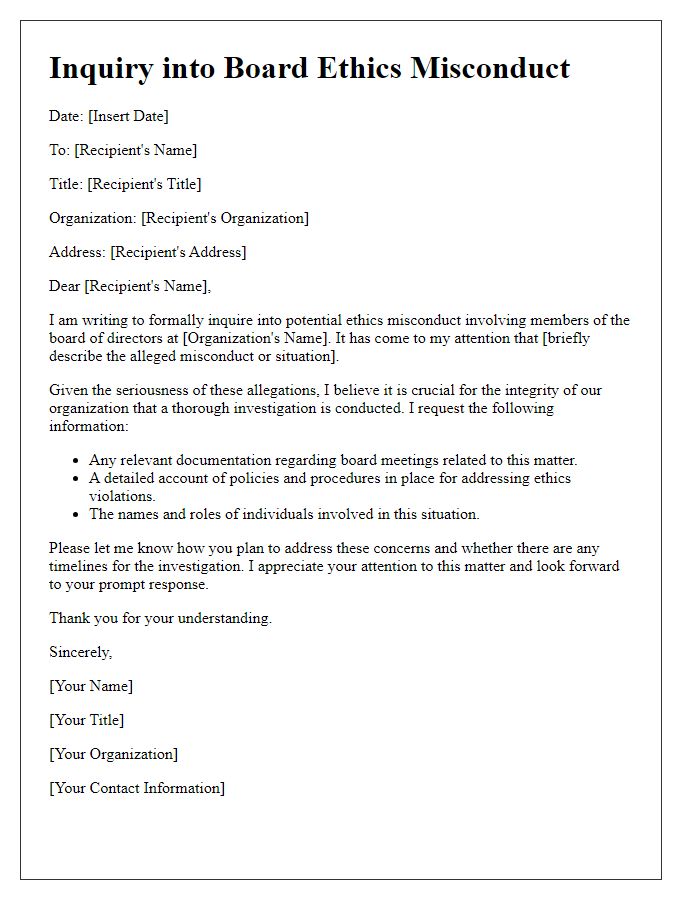
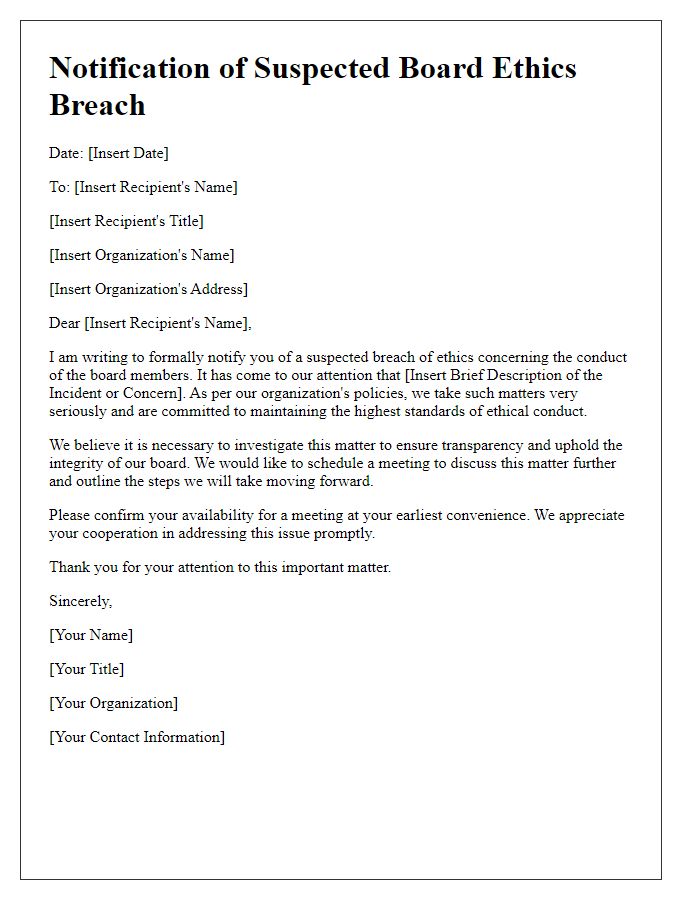
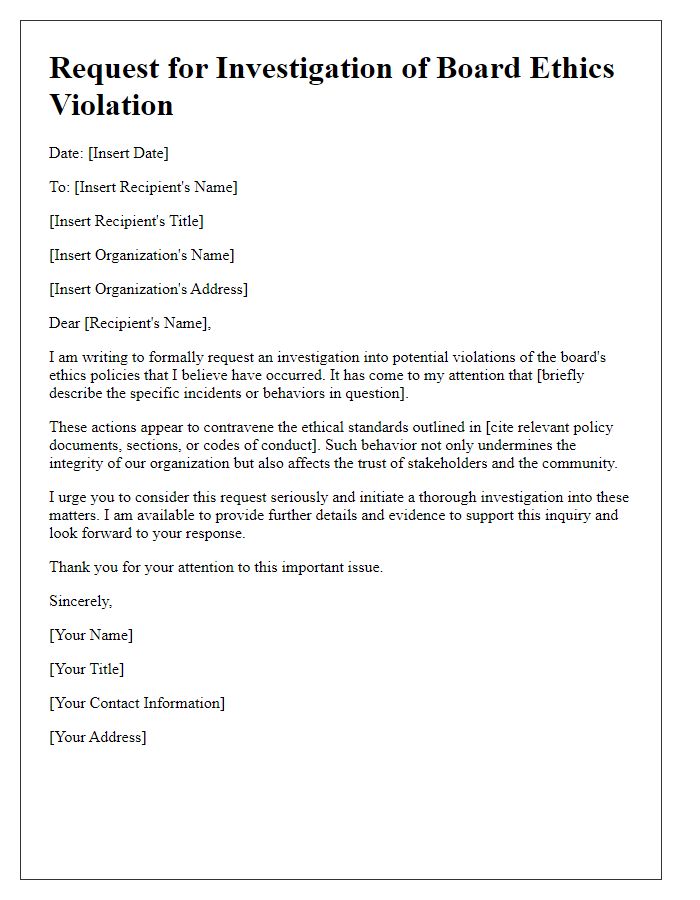
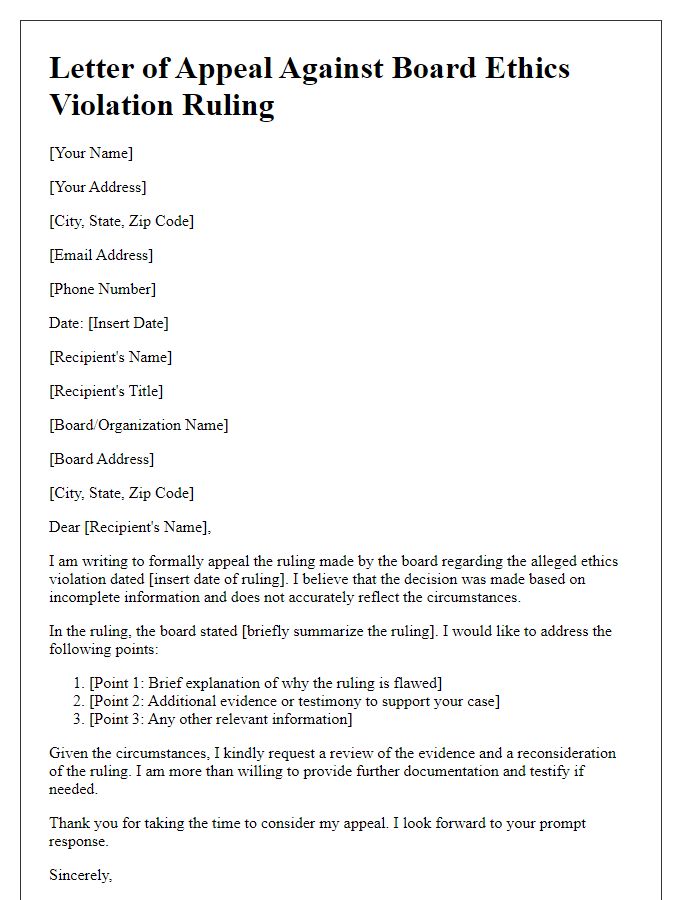
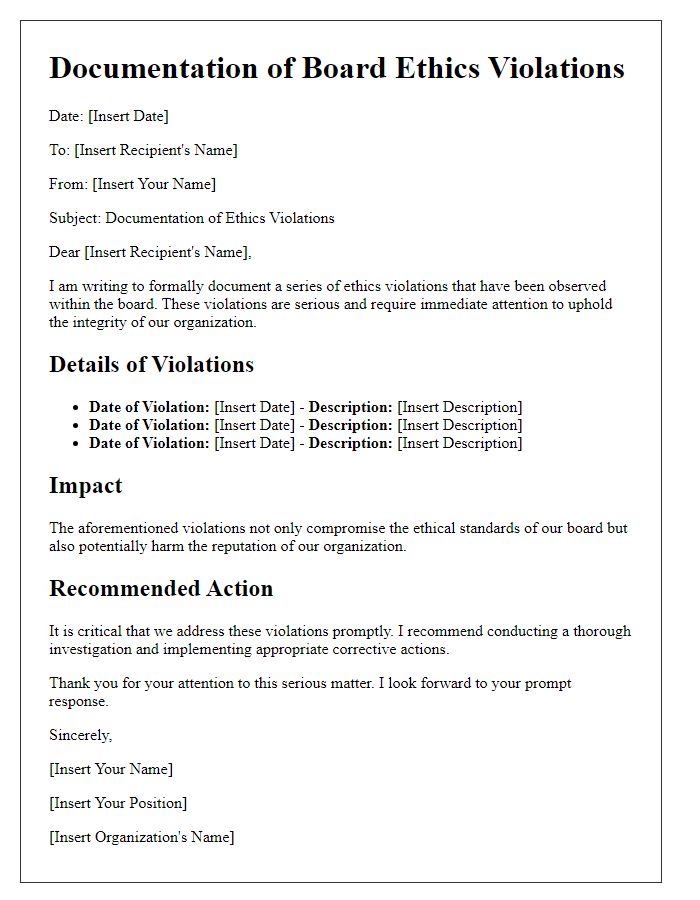
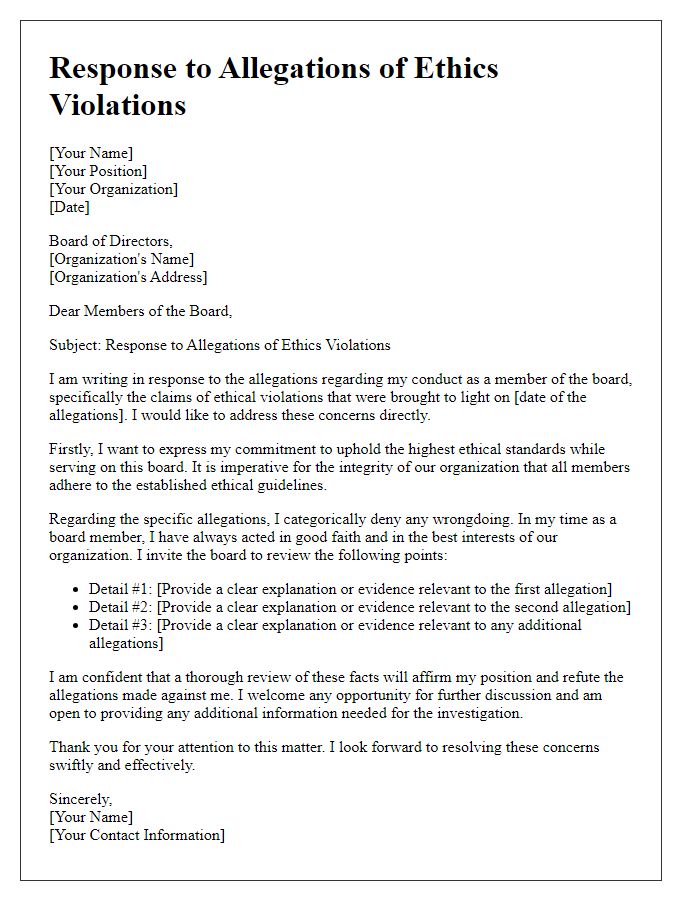
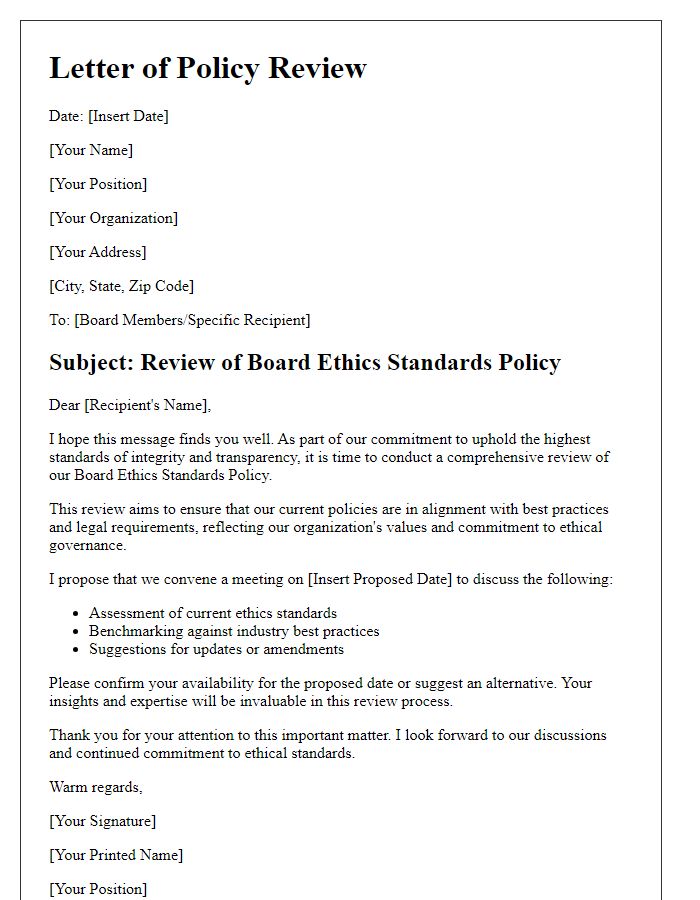
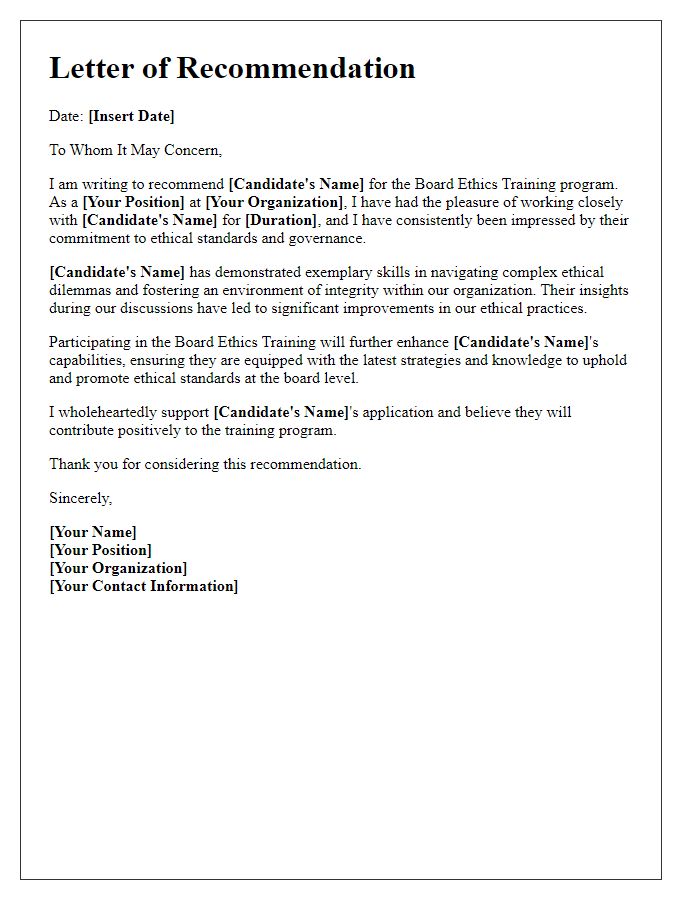
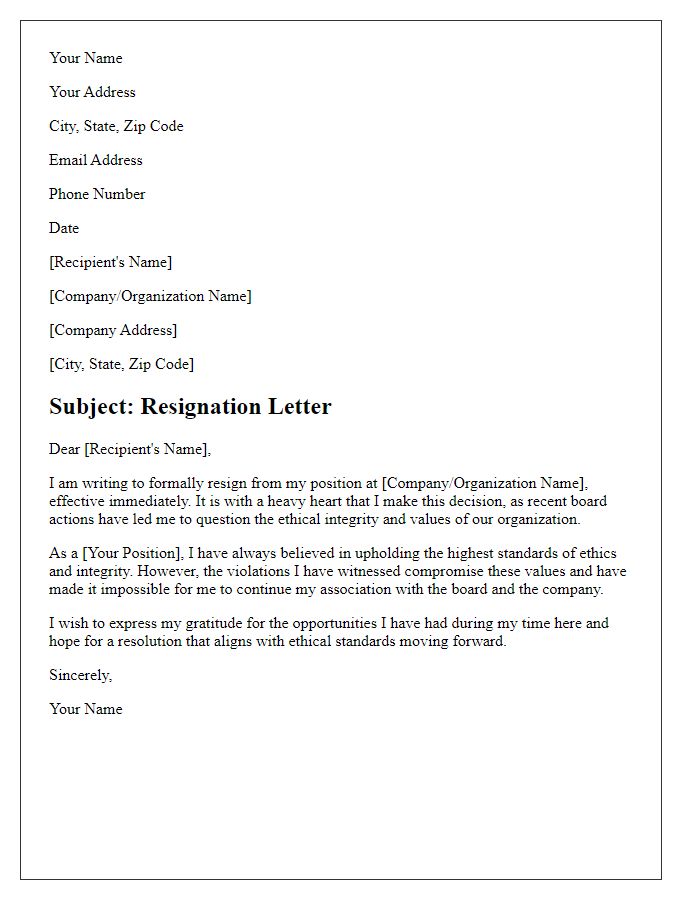

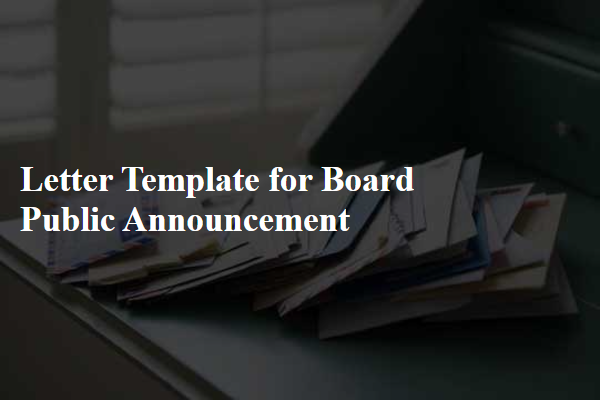
Comments